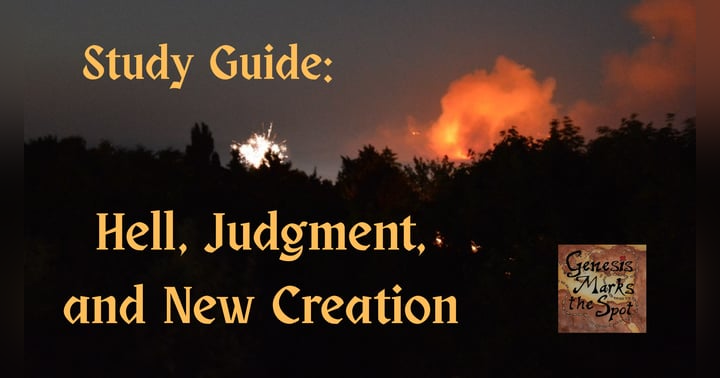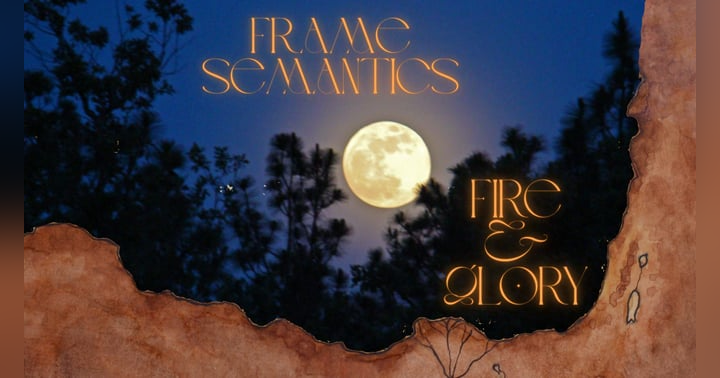Challenges to the Origin and Nature of Demons
Someone submitted this in the DCW fb group, so I thought it worth sharing my response. For the record, I really do think "challenges" are fair and good, they allow the conversation to move forward in (hopefully) productive ways. There's nothing at all wrong with this.
It does put on display some presuppositions. Which, we all have presuppositions.
1 - //I am reluctant to build a doctrine in the absence of any explicit biblical text that teaches it.//
There’s a distinctive difference between “building doctrine” and “acknowledging that this is what the 1st century authors believed.” But, on the other hand: our doctrine should be informed by the Bible and its context. Unless you can show that there’s another context for demonology in the NT, then this is what we have to work with. And we can admit it’s *fuzzy.* The language, especially from OT to NT, is not clear.
Here’s the thing: We don’t necessarily need our doctrine to tell us what they are, ontologically, in detail. So feel free to make a case for building something with doctrine that is rooted in Scripture.
Dr. Heiser wasn’t creating a doctrinal system, he was pointing out what the biblical context of the authors was; so this point is a bit moot.
2 - //it does not appear that this would account for the plethora of demons//
This is Western-propositional thinking. Again, not saying you can't do this, but you're going beyond the biblical context when you do. Be aware of this shift. It often means that you haven't adequately been able to shed your current thinking in light of the ancient thinking. (And no, I'm not saying you need to do that forever, but you need to do that in order to understand the ancient thinking first and foremost before bringing that forward to today, which is a big project and an important thing we must wrestle with.) The origin doesn’t need to make sense *to us*, it needs to make sense to the *biblical authors.*
Just like the creation story doesn’t have to make sense in modern scientific terms; it needs to make sense in its original context.
3 - //let’s not forget that the demonic hordes described in Revelation 9:13-19 numbered “twice ten thousand times ten thousand”//
Didn’t he just ask this? See above.
4 - //why would not “the sons of God” who sinned so grievously in Genesis 6 themselves be demons?//
If he wants to define “demon” as “being in rebellion to God,” then he’ll need to do some exegetical grammatical linguistic work for that. I’d just suggest reading Heiser’s Demons book and this is clearly not the definition of “demon.” But, this *is* where the language gets fuzzy, so see point 1 above. This doesn’t negate, in any way, the source of “unclean spirits,” which do not exhaust the dark spiritual side of things. Definitions and being careful with the language and text is essential.
5 - //it is also hard to believe that the spirit-being who would later be given the name “Satan” was the lone rebel from among God’s divine council for some two thousand years of human history//
Again, modern mindset. The OT does not, in fact, present Satan that way. So that just kind of breaks the question to begin with as something that you can’t presume the Bible is going to answer. It sounds like he has not read the Demons book, which is, frankly, crucial to engage with. He seems to be coming at this from a pretty simplistic viewpoint—which isn’t a knock against him. This is just “Christianity” today.
6 - //What is the nature of the “spirits” of the Nephilim? Are they not the spirits that exist as a result of the merger of fallen sons of God and human beings? So, would we not then conclude that “demons” are in some sense equally human as well as divine?//
This is the point that I find most interesting. Most people would go down the path of “well obviously they’re hybrids.” But we usually mean that, again, in a modern sense with thinking about DNA, or at least something *like* DNA. But the “unclean spirits” would probably help answer the core of this question.
As I hope should be clear for anyone who follows my work, I don’t mind disagreement with Dr. Heiser’s ideas. I don’t think Heiser would mind that. But when someone wants to take issue or have a concern and then put that out there for everyone to read, and it’s clear that they person hasn't actually engaged in all the material and arguments, well, that’s on them.
Read, in order:
- The Unseen Realm
- Reversing Hermon
- Angels
- Demons
Then engage with all of that, together.








